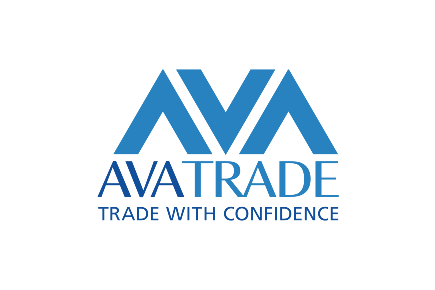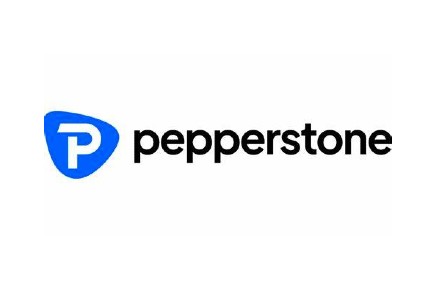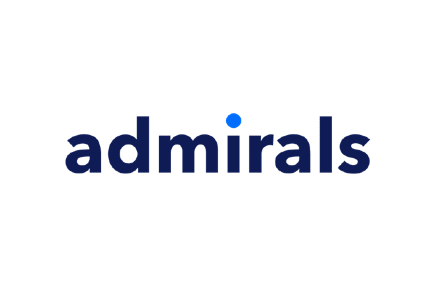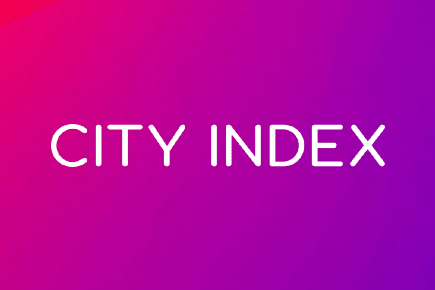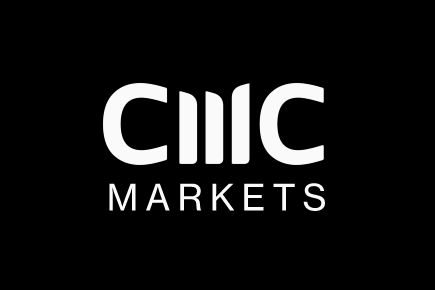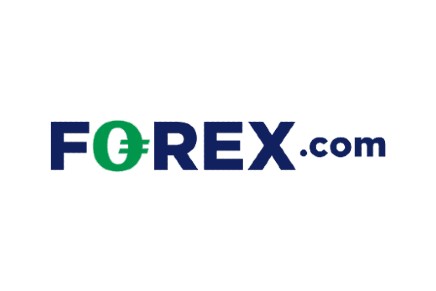MetaTrader 5 is a trading platform that aims to take some of the complexity out of forex and CFD trading. Though before you can use the smart platform, you need to open an account with a broker.
Whether you’re a beginner looking for ways to start trading, or an experienced trader who wants to start using the platform, my guide will detail some of the best MetaTrader 5 brokers UK, and some of the different ways you can invest on the platform.
Also consider: Best MetaTrader 4 Brokers UK
Browse the best MetaTrader5 brokers for April 2024
In my list below you’ll see the top 10 best MT5 brokers available for UK traders.
Top MT5 brokers at a glance
- Browse the best MetaTrader5 brokers for April 2024
- How to decide which broker best suits you
- 5 simple steps to start using the MT5 trading platform
- What is MetaTrader 5?
- Trading forex on the MT5 platform
- Trading derivatives on the MT5 platform
- What is the best way to trade on the MT5 platform?
- Best MetaTrader 5 Brokers UK FAQs
Another great broker for trading on the MT5 platform is AvaTrade.
Unlike most of the brokers on this list, AvaTrade is not regulated in the UK by the FCA. Despite this, the maximum leverage you can make use of is still 30:1 if you’re using a retail investor account.
Compared to Admiral Markets, AvaTrade does have slightly lower minimum deposit requirements – you’ll only be asked to deposit £100 when you first open your account.
As for trading fees, AvaTrade is slightly higher than other brokers on this list, as you will typically be charged $8.90 for a week-long $20,000 position on the GBP/USD pair.
There are more than 55 currency pairs on AvaTrade, as well as just over 700 CFDs offered by the broker. While this may seem like a lower offering, this should still give you access to most major currency pairs and some of the most popular CFDs.
AvaTrade has also partnered with Trading Central, offering you access to an even greater level of technical analysis on your trades.
CFDs are complex instruments and come with a high risk of losing money rapidly due to leverage. 71% of retail investor accounts lose money when trading CFDs with this provider. You should consider whether you understand how CFDs work and whether you can afford to take the high risk of losing your money.
Pepperstone
Pepperstone is an FCA-regulated broker that differs from the other brokers on my list, as its fee structure is slightly different.
When trading with Pepperstone, you will face the low benchmark fee of $0.40 on a $20,000 long position held for a week on the GBP/USD pair. However, on top of this, you will also be asked to pay a $3.50 commission charge for every lot traded.
So, before you make a trade with Pepperstone, you should ensure that you’ve calculated your total trading costs properly.
The good news is, there’s absolutely no minimum deposit required when you first open your account with Pepperstone.
The broker has a wide range of securities for you to invest in, with over 60 currency pairs and more than 1,500 CFDs to choose from.
Spread bets and CFDs are complex instruments and come with a high risk of losing money rapidly due to leverage. 75.6% of retail investor accounts lose money when trading spread bets and CFDs with this provider. You should consider whether you understand how spread bets and CFDs work, and whether you can afford to take the high risk of losing your money.

XTB
The final broker on my list of MT5-supported brokers is XTB.
This is yet another broker with relatively low fees; you will only typically face a benchmark fee of $5.80 on a $20,000 long position on the GBP/USD pair.
And, better yet, there is absolutely no minimum deposit required when you first open an account. XTB even has its own proprietary trading platform called xStation that works similarly to MT5.
As for its offering of securities, XTB has over 55 different currency pairs and more than 2,000 CFDs for you to choose from, which should be more than sufficient if you’re planning on trading major forex pairs.
XTB is regulated in the UK by the FCA, too, which means the maximum leverage you can make the most of is 30:1. Again, if you’re still a beginner, this leverage will more than likely still be suitable.
CFDs are complex instruments and come with a high risk of losing money rapidly due to leverage. 77% of retail investor accounts lose money when trading CFDs with this provider. You should consider whether you understand how CFDs work and whether you can afford to take the high risk of losing your money.
Admiral Markets
Admiral Markets is a broker that offers access to the MT5 trading platform.
Overall, Admiral Markets has more than 45 currency pairs on offer, so you’ll have access to most of the major currency pairs available on the forex market.
Better yet, if you were planning on trading CFDs on MT5, then Admiral Markets may be the broker for you, as it offers a wide selection of over 3,500 different CFDs.
One thing to keep in mind is the slightly higher minimum deposit amount when you use Admiral Markets – you’ll be required to deposit £250 when you first make an account.
Despite this higher minimum deposit requirement, trading costs are relatively competitive, as you will typically be charged around $6.40 for a $20,000 long position held for a week on the GBP/USD currency pair.
Admiral Markets also provides extensive educational and research materials for you to use, so if you’re a beginner, this platform may suit you.
Since the broker is regulated by the Financial Conduct Authority (FCA), the maximum leverage you can make the most of with Admiral Markets is 30:1.
CFDs are complex instruments and come with a high risk of losing money rapidly due to leverage. 76% of retail investor accounts lose money when trading CFDs with this provider. You should consider whether you understand how CFDs work and whether you can afford to take the high risk of losing your money.
City Index
If you’re looking for a broker that has no deposit requirements, then City Index could be what you’re looking for. Indeed, the broker asks for no minimum deposit when you first open an account.
Better yet, City Index’s trading costs are relatively low, as you will only typically be charged $4.50 for a week-long $20,000 position on the GBP/USD pair, though this may vary between pairs.
And of course, since City Index is regulated in the UK by the FCA, the maximum leverage you can receive is 30:1.
As for the broker’s offering of securities, there are over 80 currency pairs and more than 5,400 CFDs.
CFDs are complex instruments and come with a high risk of losing money rapidly due to leverage. 70% of retail investor accounts lose money when trading CFDs with this provider. You should consider whether you understand how CFDs work, and whether you can afford to take the high risk of losing your money.
CMC Markets
CMC Markets is another broker with no minimum deposit amount required at all, though it’s worth keeping in mind that the broker’s trading fees are quite high.
In fact, you will typically be charged $10.20 on a $20,000 long position on the GBP/USD currency pair. Of course, this is just a benchmark fee, and it may vary between different pairs.
If you’re looking for a broker with a large selection of different currency pairs for you to trade on, then CMC Markets could be the broker you’re looking for.
Indeed, this platform has over 330 currency pairs for you to choose from. Better yet, the broker offers more than 11,200 CFDs to trade, which is one of the largest selections on this list.
The highest leverage CMC Markets can provide is 30:1 as it is regulated by the FCA.
Spread bets and CFDs are complex instruments and come with a high risk of losing money rapidly due to leverage. 69% of retail investor accounts lose money when spread betting and/or trading CFDs with this provider. You should consider whether you understand how spread bets and CFDs work and whether you can afford to take the high risk of losing your money.
Forex.com
If low trading costs are your main concern when looking for a broker to trade on the MT5 platform, then Forex.com may be for you.
The broker has some of the lowest trading costs of the platforms on this list, as you’ll only typically be charged a benchmark fee of $3.60 for a $20,000 long position on the GBP/USD currency pair.
Despite these low trading costs, you will be required to make a minimum deposit of $100 when you first open your account.
There is a decent selection of different CFDs offered by the broker, as you can open a contract against more than 4,500 different securities. Meanwhile, there are over 90 different currency pairs available.
Of course, due to FCA restrictions put in place to protect retail investors, 30:1 is the maximum leverage you can make the most of with this brokerage account.
CFDs are complex instruments and come with a high risk of losing money rapidly due to leverage. 68% of retail investor accounts lose money when trading CFDs with this provider. You should consider whether you understand how CFDs work, and whether you can afford to take the high risk of losing your money.
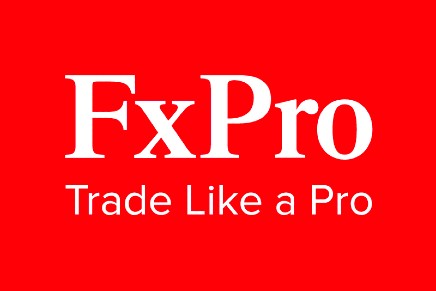
FxPro
Are you looking for a broker with no minimum deposit requirements and relatively decent trading costs? If so, FxPro may be the broker for you.
Indeed, while the trading costs with the FCA-regulated broker are comparable to other brokers at $6.70 for a week-long $20,000 long position on the GBP/USD currency pair, you won’t be asked to pay a minimum deposit whatsoever.
This makes the platform great for those that don’t want to commit a large sum of money to their trading account and would rather just dabble on the MT5 platform.
As for the broker’s choice of securities, FxPro has just over 70 currency pairs and more than 1,750 CFDs on offer.
Better yet, if you’re still a beginner to the MT5 platform and think you’ll need some support to use it, then FxPro’s reportedly excellent customer service helplines may be able to help you.
Capital at risk.
IG
Perhaps one of the most well-known brokers on this list for both beginner traders and experienced traders alike is IG, and for good reason.
The relatively easy-to-use broker has a huge selection of securities on offer. In fact, there are 205 different currency pairs and more than 12,500 CFDs to choose from.
Another great aspect of IG is its range of educational and research tools provided with your trading account for no extra cost. If you’re still a beginner at trading on the MT5 platform, this could make IG the ideal broker for you.
One thing to note about IG is its relatively high fee structure. While there is no minimum deposit required when you first open your account, you’ll typically face a benchmark fee of $10.20 for a $20,000 long position on the GBP/USD pair.
As one of the largest investment platforms in the UK, IG is regulated by the FCA, meaning the maximum leverage you can make the most of is 30:1.
Spread bets and CFDs are complex instruments and come with a high risk of losing money rapidly due to leverage. 69% of retail investor accounts lose money when trading spread bets and CFDs with this provider. You should consider whether you understand how spread bets and CFDs work, and whether you can afford to take the high risk of losing your money.
How to decide which broker best suits you
When you’re trying to decide which forex broker best suits you, you should ideally compare the features of each and figure out which would best fit your trading strategies.
For example, if you’re still a beginner, you may want to consider using a broker that offers educational and research materials, such as IG.
With a broker like this, you could use the resources available to learn about the platform while you trade.
Or, if you’re planning on trading large volumes of securities, then you may want to think about using a broker with low benchmark fees.
This way, should a trade go your way, excessive fees and charges won’t eat into your profits too much.
It may also be worth keeping an eye out for non-trading fees such as minimum deposits and withdrawal fees. These may not seem like much, but if they’re high, they can quickly eat into your profits.
5 simple steps to start using the MT5 trading platform
1. Decide which broker best suits you
Before you can start using the intuitive MT5 trading platform, you first need to open an account with a broker that offers access to it.
Each broker comes with its own set of benefits and downsides, so you should use my list above to compare the features of the different brokers on offer.
For example, if you were planning on trading a large volume of CFDs, you may want to consider using a broker that offers a wide variety of different CFDs.
Speaking of trading large volumes, if you want to trade lots of different securities, you may want to consider choosing a broker with lower trading fees. This way, should you successfully make a profit from your investments, you won’t face as many costs.
Or, if you’re still a beginner to the MT5 platform, you may want to think about using a broker that offers useful educational and research materials. By using a platform that does, you can better your knowledge about the MT5 platform while you invest.
Of course, there are many other factors to consider when you’re deciding which brokerage account to use, so you should properly compare each one before you open an account.
2. Open an account with your chosen broker and download the MT5 platform
Now that you know which broker you’ll be using, the next step is to set up an account with that broker.
This should be simple enough – you’ll most likely be required to supply essential information before you can open your account.
Your broker may ask you to provide documentation so they can prove your identity, such as a scanned passport or a P60 form.
When you’ve opened your account with the broker, you then want to download the MT5 platform. This is because, technically, a broker only “hosts” the MT5 platform, as it runs as third-party software.
Depending on the broker, you should see a “MetaTrader 5” download link somewhere on their website. When you click this, you will typically be redirected to the MetaTrader website where you can download the software.
The platform is completely free to download, and when you click on the install link, you’ll typically receive a “.exe” application. Click on this and your download should start.
Using Mac OS or Linux
Unfortunately, if you use a Mac OS or Linux operating system, you will need to complete a few additional steps before you can run the MT5 platform.
For Mac OS, you’ll need to download a virtual machine emulator that allows you to run a different operating system, such as Boot Camp or VMWare Fusion.
Meanwhile, Linux users will be required to use the Ubuntu distribution kit, and then install the “Wine” software which allows you to run Windows programs on your Linux OS computer.
When the software has been downloaded, you’ll then be asked to create an additional account with MT5. You will most likely be asked to link your brokerage account with your MT5 platform account by inputting the login details of your brokerage account.
3. Open a position on the MT5 platform
When you’ve downloaded the MT5 platform, you’re ready to start investing with it. Though first, you should decide which security you even wish to trade in the first place.
For example, MT5 makes forex trading highly accessible, so if you wanted to trade forex that is relatively stable but generally offers lower potential returns, you may want to consider investing in a major currency pair, such as GBP/USD.
Or, if you wanted to trade a forex currency pair that is more volatile and has the potential for higher returns if you know what you’re doing, then a minor pair, such as GBP/JPY, may better suit your trading strategies.
And, of course, you can always invest in CFDs on the MT5 platform. Though, you should keep in mind that CFDs are complex instruments, and more than half of retail investor accounts lose money trading CFDs. Trading instruments like these may be better suited to more advanced traders.
When you’ve decided which security you wish to invest in, simply find the “Quotes” tab, select it, and click on the “New order” option. Here, you should be able to find the security you want to trade with a simple search.
When you’ve found your desired security, all you need to do is input the volume of the asset you wish to purchase.
4. Customise your MT5 charts and set up stop-loss limits
One vital piece of information you should consider before you purchase your desired security is whether you need to set up stop-loss limits.
These are essentially automatic trading orders that execute when the price of your security hits a certain price.
For example, if you opened a position on the GBP/USD currency pair at 0.5, you could set a stop-loss limit to trigger when the price hits 0.3.
When it does hit this price, your position will be automatically closed. This is a great way to avoid any unnecessary losses when you’re investing, especially if you’re still a beginner.
After all, chances are you don’t have time to sit in front of your trading accounts at all hours of the day. If the price takes a sudden swing and you don’t have stop-loss limits in place, you could end up losing money rapidly.
Or, if the price increases while you’re away from your trading accounts, it could drop again before you have time to close your position and turn a profit.
Another thing that makes the MT5 platform so intuitive is its advanced trading tools that allow you to customise charts. You can draw lines on your price charts to predict trends, add technical indicators to your chart, or completely change the timeframe.
5. Continue to monitor your position and close it when the time is right
Congratulations, you’re now a fully-fledged MT5 investor. The hard work doesn’t stop here, though – you need to ensure that you’re monitoring your position whenever you can.
Even if you have stop-loss limits in place, you should ideally be monitoring any price movements on your securities every day.
A good way to stay on top of price movements and ensure that you’re staying updated with your securities is to set price alerts. This way, you’ll receive notifications if the price of your assets changes.
Then, when the time is right, you can close your position to turn a profit, or cut your losses if things haven’t gone your way.
What is MetaTrader 5?
MetaTrader 5 (MT5) is a third-party trading platform that allows you to invest in and track several different financial instruments. This includes both forex and CFD products.
The thing that sets the MT5 platform aside from other trading apps is how intuitive and user-friendly it is. The platform offers users access to a plethora of advanced technical analysis tools that allow you to keep track of typically complicated markets.
In fact, this is where the real benefits of the MT5 platform start to shine – forex markets are usually quite difficult to understand and predicting trends can seem like a mammoth task.
So, by using a platform that aims to relieve some of the complexity of these markets, you can potentially give yourself an easier time when you trade.
While you are required to open an account with a broker before you can use the MT5 platform, you should keep in mind that it is essentially external software.
The broker will “host” the platform, and even though you’re trading on MT5, all investments are dealt with by the broker.
Trading forex on the MT5 platform
One of the most common ways of trading on the MT5 platform is forex trading. This is the global marketplace that allows you to exchange foreign currencies.
When trading on the forex, you will typically see that most currencies are paired together, and these currency pairs are split into major and minor pairs.
For example, the EUR/USD pair is a major currency pair, as it is between two commonly traded currencies. Major pairs tend to be highly liquid, which means you can essentially trade them whenever you wish.
Meanwhile, minor currency pairs, such as EUR/GBP, are far less liquid. Also, you may find that minor pairs tend to be more volatile than major pairs due to their low trading volume.
Forex traders typically speculate on currency pairs to turn a profit. For example, you can purchase a certain volume of the GBP/USD currency pair and wait until the value of the dollar rises relative to GBP, after which you can buy back GBP for a profit.
Unlike traditional stock markets, the forex market is open at all hours of the day, seven days a week. This is because it deals with currencies around the world that are located in different time zones, so the forex market needs to be open all the time.
Though, one of the barriers to entry to trading forex is the complicated jargon used to describe the different features of trading. Continue reading my guide to find out what each piece of essential jargon means.
Leverage
One of the facets of forex trading that you must keep in mind and research thoroughly before you start trading is leverage.
Your forex broker will typically offer you leverage in the form of a ratio. For example, 10:1 is a common leverage offered by forex brokers.
When you make the most of leverage, you’re essentially “borrowing” money from forex brokers.
Say you were to trade one lot of the GBP/USD pair for £100,000. If your forex broker offered you leverage of 10:1 for your trade, you would only be required to pay an upfront cost of £10,000 to make the trade.
This is called the “margin”, and this reduced total cost for trading can allow you to make larger trades with a smaller upfront investment. In turn, this can see you benefit from magnified returns.
However, this is a double-edged sword, as if the trade doesn’t go your way, you could be required to pay back more than you initially invested.
Also, it’s worth keeping in mind that the largest leverage FCA-regulated brokers will offer is usually 30:1. This is because FCA regulation states that it is dangerous for retail investor accounts to access leverage higher than 30:1, as if a non-professional makes a mistake with leverage larger than this, there is a high risk of losing money rapidly.
Spreads
Another important aspect of forex trading is the spread. This is the difference between the bidding price and the asking price for a particular currency pair, measured in “points” or “pips”.
Major currency pairs, such as GBP/USD, tend to have much tighter spreads when compared to minor currency pairs. This is partly thanks to major pairs’ higher liquidity.
As you can imagine, minor pairs tend to have far wider spreads than major pairs, again due to liquidity issues.
A common way for brokers to charge users to trade forex is by building the trading costs into the spread. This is why, if you’re looking for a broker with low fees, you should find one that offers competitive spreads.
Alternatively, you could choose an ECN broker that offers direct market access to multiple liquidity providers. These providers simple offer the best price available, so there’s no manipulation of spreads.
Spreads tend to change frequently and can sometimes be tricky to keep a track of. This is why trading platforms like MT5, which help you properly track spreads, are great for forex trading.
Trading derivatives on the MT5 platform
Another way you can trade on the MT5 trading platform is through derivative trading.
This is often done with the use of spread betting or CFDs, both of which involve you speculating on how the price of a particular asset will move.
When you trade derivatives, you don’t actually purchase the underlying asset, you’re simply speculating on how the price will move. As for the underlying assets themselves, you can speculate on a plethora of different securities, ranging from precious metals to currency markets and more.
It is vital you remember that derivative trading is very complex, and more than half of retail investor accounts lose money when trading this way. So, before you decide to start trading derivatives, you should read on to find out the features of both spread betting and CFD trading to decide if they are suitable for you.
Spread betting
Spread betting is when you “bet” on the price movement of a particular security. It’s worth keeping in mind that when you spread bet, you aren’t actually purchasing a stake in the underlying asset.
For example, you could spread bet on the price movement of the GBP/USD pair, though you wouldn’t actually own any of the currency you’re betting on.
When spread betting, you can either predict that the price of a security will increase, which is called a “long” position, or that the price will decrease, called a “short” position.
If you predicted a price movement correctly, you would earn the difference between the opening price, and the price when you closed your position.
So, to give an example of how trading spread bets works, imagine you wanted to spread bet on the GBP/USD pair.
Let’s say that the asking price for the pair was 1.0015, and the bidding price was 1.0010. You believe the price of the currency pair will drop, so you open a short position against it.
If you staked 50p for each point the pound decreased below the asking price, and the GBP/USD currency pair did indeed drop by 10 points to 1.0005, you would earn £5 from your 50p position – as that’s 50p times the 10 points.
Though, if the price of the GBP/USD pair increased by 10 points to 0.00025, then you would lose £5.
Trading CFDs
One of the other derivative trading methods mentioned previously is CFDs, or “contracts for difference”.
CFD trading is relatively similar to spread betting, with a few key differences. For example, you’re still “betting” on how the price of an asset will move, though, unlike spread betting, you’ll instead receive the difference in price from when you opened the position.
Also consider: Best CFD Trading Platform for Beginners
So, to give a further example, imagine you purchased 100 long CFDs on Apple shares when the price rested at $135.10 a share. If your leverage for this trade was 5:1, you would be required to pay a margin of $2,701.
If the value of Apple increased to $150 a share and you decided to close your position at this time, then the value of the security would’ve increased by 14.9 points.
Your profit would be calculated from the difference between the opening and closing price, which is 14.9 points, multiplied by the number of contracts you purchased. So, in this example, your total profits would be $1,490.
Source: Capital.com
What is the best way to trade on the MT5 platform?
The best way to trade on the MT5 platform wholly depends on your experience levels, your tolerance for risk, and the reasons you’re investing in the first place.
If you are still fairly inexperienced with the MT5 trading platform, you may want to consider trading forex instead of derivatives.
This is because derivatives, such as CFDs and spread betting, tend to be very complex financial instruments, and if you don’t know what you’re doing, you could end up losing more money than you initially paid in.
Also, as you can imagine, derivative trading tends to be far more high risk. If you have a low risk tolerance and don’t want to commit yourself too much to trading, forex may be the better option for you.
Best MetaTrader 5 Brokers UK FAQs
Can I use MetaTrader 5 in the UK?
Which is better: MT4 or MT5?
There is technically no “better” platform between MT4 and MT5, as both are still used today. MetaTrader 4 tends to be better known and more familiar with investors, and remains a tried and tested method for trading.
Meanwhile, MetaTrader 5 is reportedly much faster to use with new and updated analytical tools, though it is currently less popular as of October 2022.
Please note
CFDs are complex financial instruments and more than half of retail CFD accounts lose money when trading CFDs. Please make sure that you know these risks before you start trading and that you’re aware there’s a high chance of losing money rapidly on your investment.
The value of your investments (and any income from them) can go down as well as up and you may not get back the full amount you invested. Past performance is not a reliable indicator of future performance. Investments should be considered over the longer term and should fit in with your overall attitude to risk and financial circumstances.
- Learn how to invest in the FTSE100
- Have you considered transferring your pension?
- Find the best trading platforms

